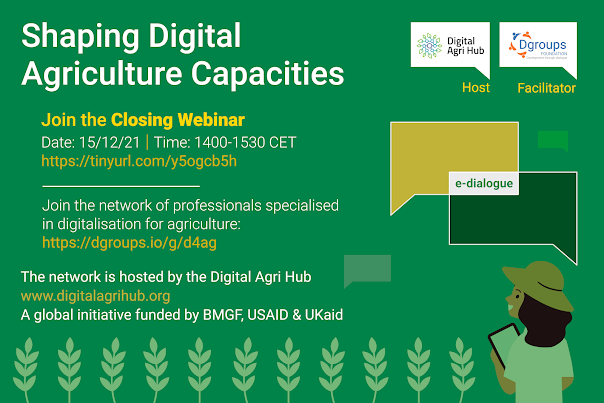Rarotonga, Cook Islands, 14 April, 2015 – From 13 to 17 April 2015 the
Cook Islands Ministry of Agriculture (MoA) is hosting a Web 2.0 and social media learning opportunity workshop and training. The event held at the MoA’s headquarters in Arorangi, is jointly supported by the
Technical Centre for Agricultural and Rural Cooperation (
CTA), and the European-Union-funded
Pacific Agriculture Policy Project (
PAPP) (part of the
Intra-ACP Agriculture Policy Project). The
Secretariat of the Pacific Community (
SPC) is the implementing agency for the European Union funded PAPP project.
 |
Participants in the course posing together
with the Minister of Agriculture, Kiriau Turepu |
Participants were drawn from government agencies, including ministries of the environment, agriculture, education and internal affairs, the police and the Seabed Minerals Authority, from the private sector and from civil-society and non-governmental organisations, including the Red Cross, the National Youth Council, national women’s group, and two youth organisations Rotaract, and organics. All were keen to learn how to make best use of online social media tools to generate and share information to achieve both personal development and organisational goals.
The Hon Minister of Agriculture, Kiriau Turepu, delivered the keynote address to more than 25 local participants. He acknowledged the partnership of CTA, SPC and the European Union for offering the opportunity to the Cook Islands to build capacity in information and communication technologies and social media.
“I am particularly pleased for the Ministry of Agriculture to take the lead in promoting social media to generate, manage and disseminate information in this ever-more-connected world we live in. The internet offers tools we can harness for the development of our people. The outer islands may have produce to sell and using the internet they can connect to consumers and markets in Rarotonga. We will be able to share and show new innovative ideas such as growing dragon fruits for example – I can show a friend in Penrhyn steps on growing these fruits using social media.
“As the first of this kind of workshop to be held here in the Cook Islands, we are expecting this group of participants to learn, and make use of the knowledge so that our people are better informed, more articulated in the affairs of development as far as agriculture is concerned.
“Today the speed with which information travels in our work places and the changing technologies that we have at our disposal is extraordinary and important to all of us. Whether it is Facebook, blogging, Twitter, photos you share, these are all extensions of individuals and their personalities. They help portray interests, views and help show people who they are. They offer a platform for you and I to be ourselves, to be creative, to be who we want to be and most importantly, have an audience for all to debate critical innovative ideas that are good and can grow for the future.”
Mr Emil Adams, PPPP Information Communication Management Officer, thanked Permanent Secretary, Dr Matairangi Purea, and MoA Director of Policy, Planning, Mr Patrick Arioka, for the planning and coordination that went into organising the workshop. The good turnout of local participants is testimony of the planning, interest and enthusiasm of stakeholders to release their officers to attend the Web2.0 and social media training.
“Social media tools allow continuous dialogue between groups of individuals to take place on the internet. This online dialogue contributes to a knowledge society where individuals continuously pull information as well contribute content, further enriching knowledge and available to other users. People are empowered when they freely express their opinions on social media, and attain a level of gratification when they get information they want when they want it,” said Mr Adams.
“Accessing the internet allows a farmer in a remote village to directly interact and feedback on government policies affecting rural livelihoods, tweet a photo of a pest outbreak back to researchers for identification and management, or post on Facebook photos of a rural development training.”
Workshop facilitator, Ms Anju Mangal, offered words of warning about the potential of social media, noting that, while it can open up a whole new horizon of possibilities that can improve lives, it can also destroy lives and upset social norms if used wrongly by unscrupulous individuals.
Ms Mangal said that online cyber security is of major concern to individuals and to organisations that want to protect their integrity. Social media policies supported by national infrastructure need to be robust to guide the use of these tools to achieve national goals. Above all, measures are needed to prevent compromising the integrity of government machinery.
In the Cook Islands broadband connection is available to more than 95% of the population, with mobile coverage reaching more than 99% of the population. On Rarotonga only, third-generation (3G) services are available to 11,000 plus mobile connections.
Agriculture currently contributes only 3.8% to GDP, but Mr Arioka expressed his confidence that this can be increased through the use of online tools supported by an enabling policy environment. The Ministry is currently developing a new Strategic Plan to help agriculture services support income streams, food consumption and self sufficiency. Healthy soils, healthy food will underpin the strength of the new Strategic Plan.
CTA, in partnership with SPC, has embarked on a series of regional Web2.0 and social media learning opportunity workshops to strengthen national capacity in the use of social media for agricultural development and climate-change adaptation. National workshops have been completed in Fiji, Papua New Guinea, Samoa and Vanuatu. A second national workshop for the Cook Islands is planned for September 2015.
Here is a link to follow for more information on
forthcoming training events.






